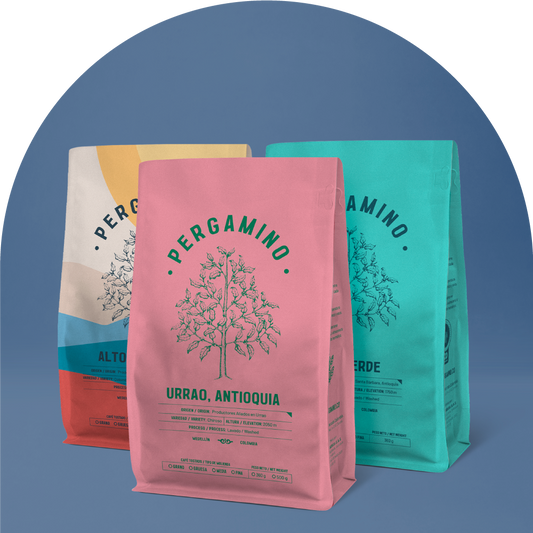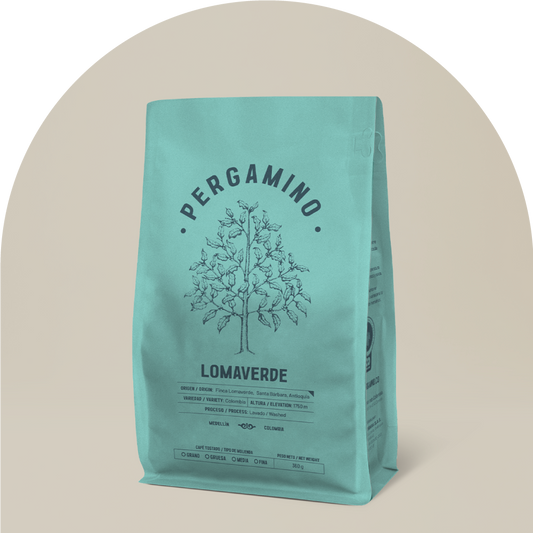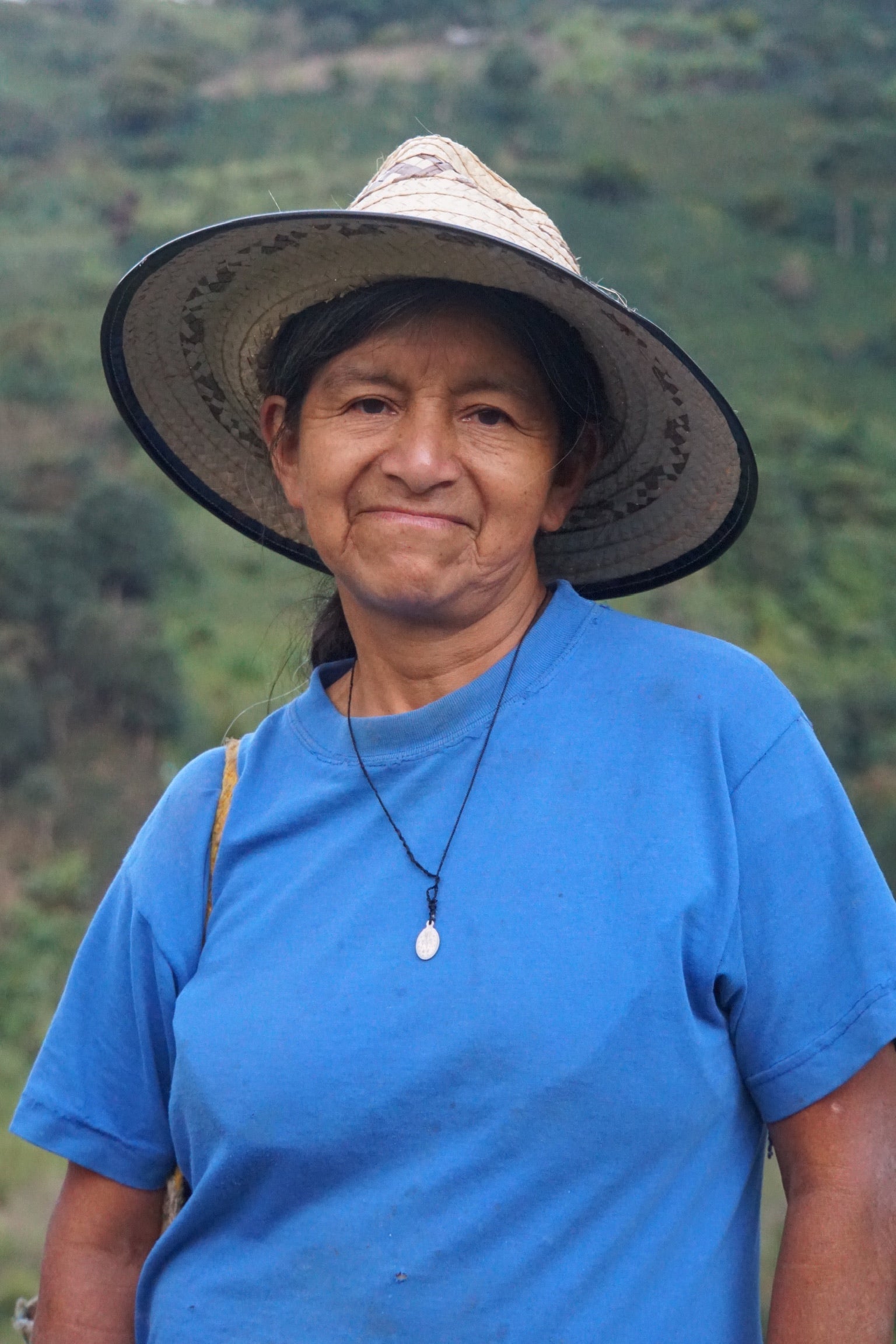
The Allied Farmers Project
Like all small, medium and large producers in Colombia, Pergamino spent many years helplessly riding the roller coaster of international coffee prices. We had to invest in our crops without knowing what they would sell for during their 12-year production cycle. As the saying goes in Colombia, there were years of lean cows and years of fat cows — the former being more common than the latter. We sold our coffee to a large exporter, never knowing its unique sensory qualities, whose hands it ended up in, or at what price. We had no way to add value to our coffees, or receive a fair price for higher quality.
Everything changed when we started selling our coffee directly to roasters and importers around the world, gaining access to a fair and sustainable trade chain that recognized quality. Stepping off the roller coaster opened up the opportunity for us to help thousands of small coffee farmers do the same. Today we work with more than 600 producers of high-quality coffees in different regions of the country. We are committed to transparency in our partnerships with these farmers, ensuring that profit margins are clear and value added by quality goes directly to the producer. The premiums we pay for our coffees range from 30% – 300% over market prices, depending on the cupping score and volume of the coffee. We also support our farmers with technical assistance so that they can continue to improve crop quality. Our goal is for farmers and their families to see coffee cultivation as a profitable, decent business, and not just a way to survive.
The average age of the Colombian coffee farmer is 55 years old — if we do not make it profitable and worthwhile for the next generations of growers to stay on their farms, we will lose this great tradition in one or two generations.
Discover some of our signature origins:
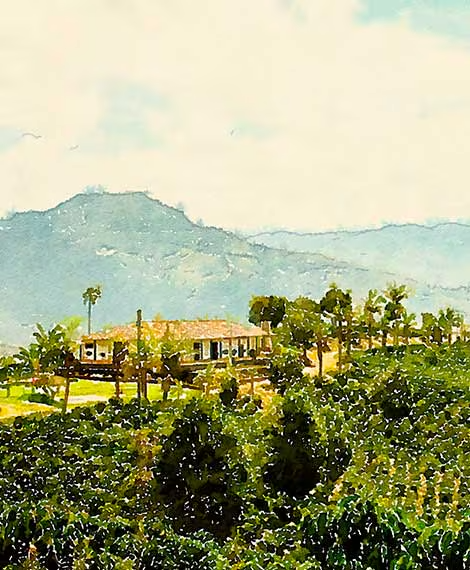
LOMAVERDE, ANTIOQUIA
Lomaverde
Varietal: Colombia
Altitude: 1750m
Coordinates: 05°55.663”N, 75°35.744”W
Profile:
Sweet and smooth, classic notes of chocolate and caramel, with a subtle citric brightness.
Lomaverde is the name of our main farm and our signature coffee. Located in the mountains of Santa Bárbara, south of Medellín, the farm’s altitude is between 5,400 and 6,400 feet above sea level. The perfect combination of warm days and cold nights provide the ideal climate for the slow but constant development of our coffee beans. This coffee is a great example of the sweet, smooth and bright profiles that best represent Colombian coffee and it is the perfect starting point to discover our different origins and the world of specialty coffee.
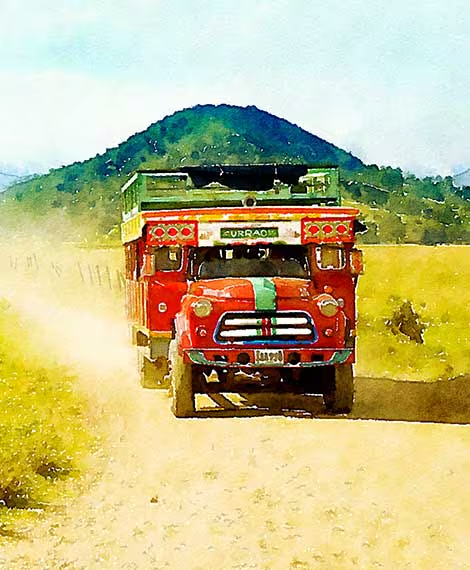
Urrao, Antioquia
Urrao
Varietal: Catarru Chiroso
Altitude: 1900 – 2200 m
Coordinates: 05°55.663”N, 75°35.744”W
Profile:
Ripe peach, caramel with a floral finish..
Urrao is easily one of the most amazing towns in Antioquia, tucked away in the middle of the cordilleras that divide our state. Descending from the mountains into the town, the view of the Valle del Penderisco is astonishing. This region has both the people and the agronomical conditions —high altitude, lots of rain and volcanic soil— that are needed to produce some of the most special coffees of Colombia. This coffee comes from 30 great producers. They have made their mark in competitions, reaching several top positions in the prestigious Cup of Excellence, easily the most renowned competition in the coffee world. With them, as with the other producers, we have agreed upon a long term relationship, guaranteeing a high, just, and sustainable price for coffee that meets our quality standards.
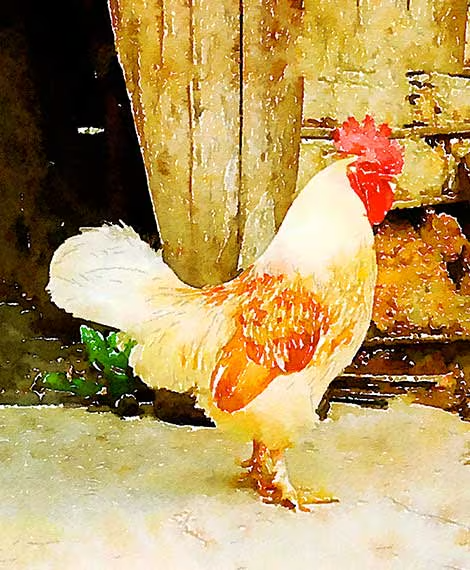
Caicedo, Antioquia
Caicedo
Varietal: Caturra
Altitude: 1900 – 2200 m
Coordinates: 05°55.663”N, 75°35.744”W
Profile
Subtle notes of vanilla and sugarcane, complemented by hints of red fruits and red wine.
Caicedo is another world, deep in the heart of the mountainous Cordillera. To reach it, you must take a long, winding dirt road, and then walk a few kilometres straight up a mountain. It’s quite the journey — but well worth it, as the region’s high altitude produces truly exceptional coffee, with notes of vanilla and panela. Ravaged by violence in the 90’s and early 2000’s, Caicedo is now on a path to recovery — and we are commitment to supporting its dedicated farmers in building a strong local economy.
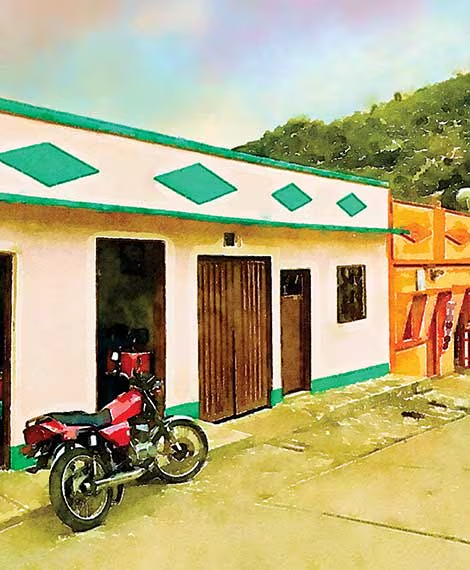
inzá, cauca
Inzá
Varietal: Tabi, Caturra, Borbón
Altitude: 1950 m
Process:
Fermented and washed, sun-dried..
Profile
Blackberry yogurt and flower nectar.
Inzá is a small town tucked into the depths of the central Andean Mountain Range. Surrounded by alpine tundra and snowy peaks, this region is part of our country’s most important hydric reserve, and the source of Colombia’s most important rivers, including the Magdalena, the Cauca and the Patía. Our project started in this region three years ago and includes 150 allied producers, most of them very small and absolutely committed to the highest standards of quality.
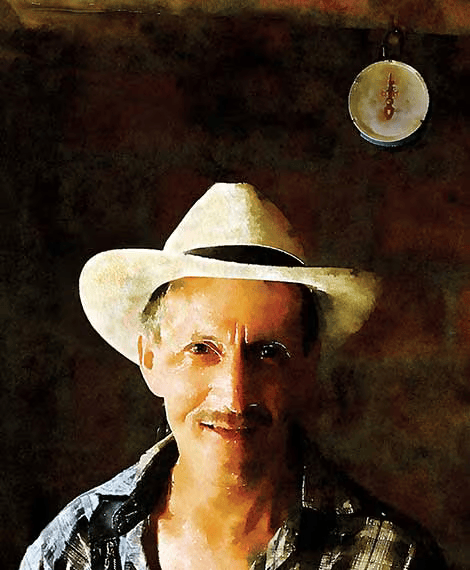
Vereda El Noque, Caicedo, Antioquia
Don Rubén
Varietal: Tabi, Caturra, Borbón
Altitude: 2100 m
Process:
Extended fermentation, washed and sun-dried..
Profile
Ripe plum, mango and sweet tobacco.
Don Rubén is a complete character — funny, happy, hard working and proud of his origins and the quality of his coffee. Although he is originally from Caicedo, he spent his youth “jornaliando”, or working in hundreds of farms spread throughout Antioquia in order to save and eventually buy his own piece of land. He succeeded after 20 years, and bought a small farm far up in the mountains, where many told him that he could not grow coffee because it was too high and cold. Although this indeed affected his productivity, the incredible cup quality he was able to get from his Caturra and Borbón trees more than compensated for it. As a member of our Allied Producer Program, Don Rubén can count on a higher and more stable income, and he can indulge himself in “little pleasures”, as he calls them. One of them was to fix up his house, the other was to fulfill his lifetime dream of traveling by airplane.
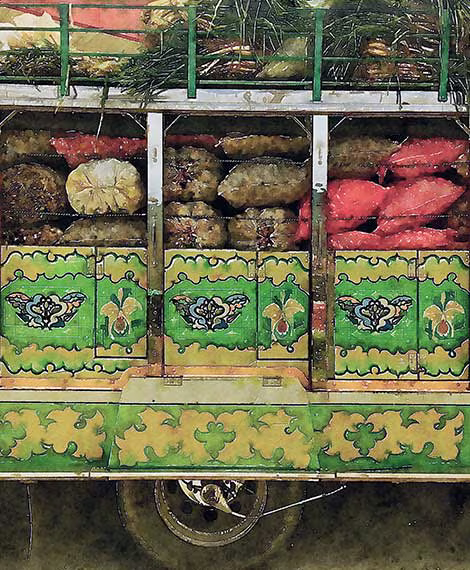
BUESACO, NARIÑO
Buesaco
Varietal: Caturra
Altitude: 2050 m
Profile
Black plum, apricot nectar and raw sugarcane.
The small town of Buesaco is nestled in the Juanambú Canyon, a lush Andean valley with a history as dramatic as its breathtaking green cliffs. On a narrow bridge that still stands today, Antonio Nariño and his men fought a critical battle in the struggle for independence — enabling Simón Bolívar’s campaign to forge southward. Almost two centuries later, the region was ravaged by some of the bloodiest clashes between guerrillas and paramilitary groups in Colombian history. Today, however, its incredible speciality coffees are helping to turn the page, and build a brighter future for its people. Thanks to its ideal altitude, dedicated producers, and ancient soils of volcanic ash, Buesaco now produces some of Colombia’s nest coffees — with elegant profiles, subtle fruit notes, and touches of flowers and molasses.
Seguir Leyendo
-
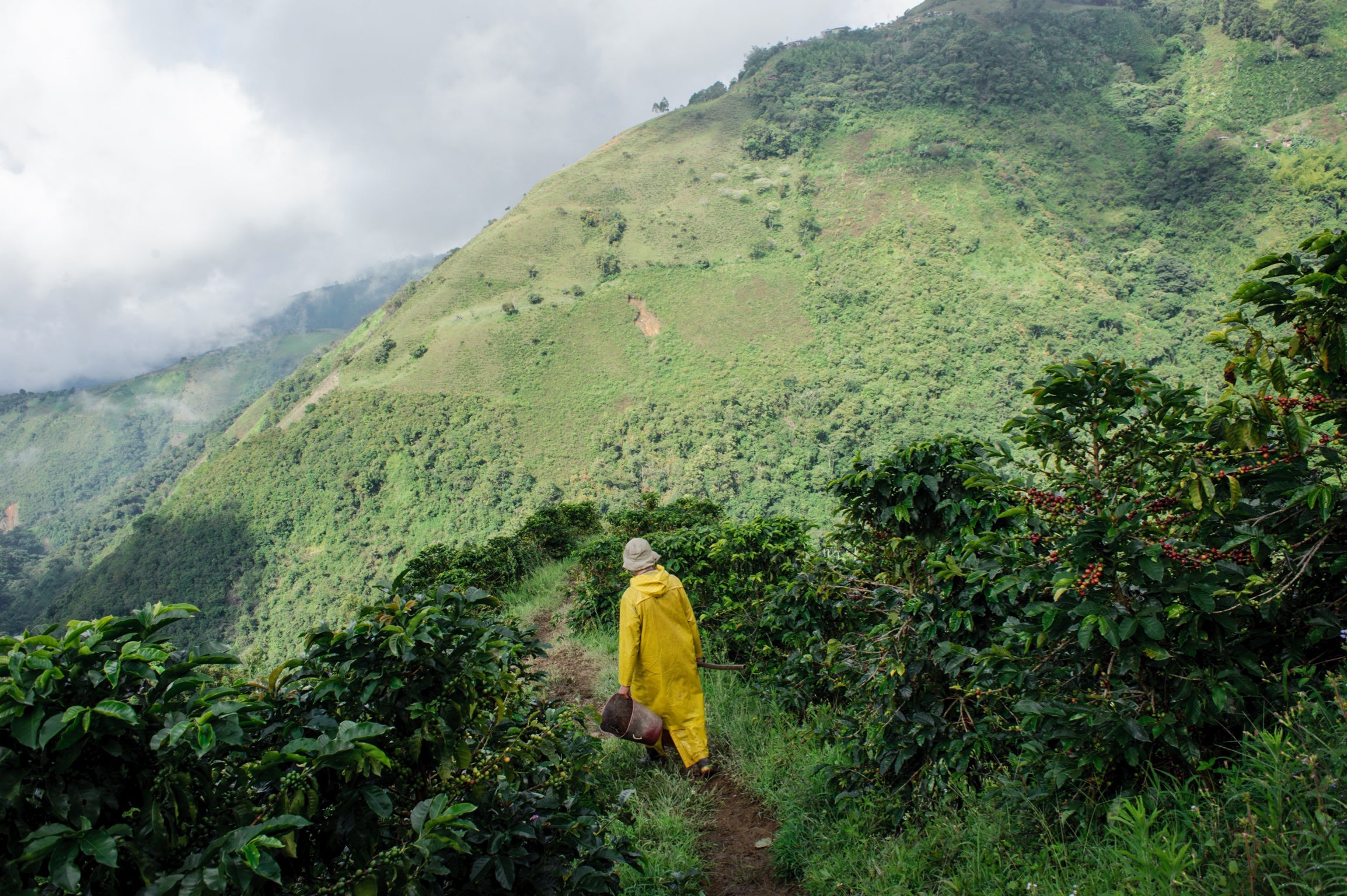
01. Introduction
See moreWe are privileged to work in every stage of the coffee process — from farm to cup.
-
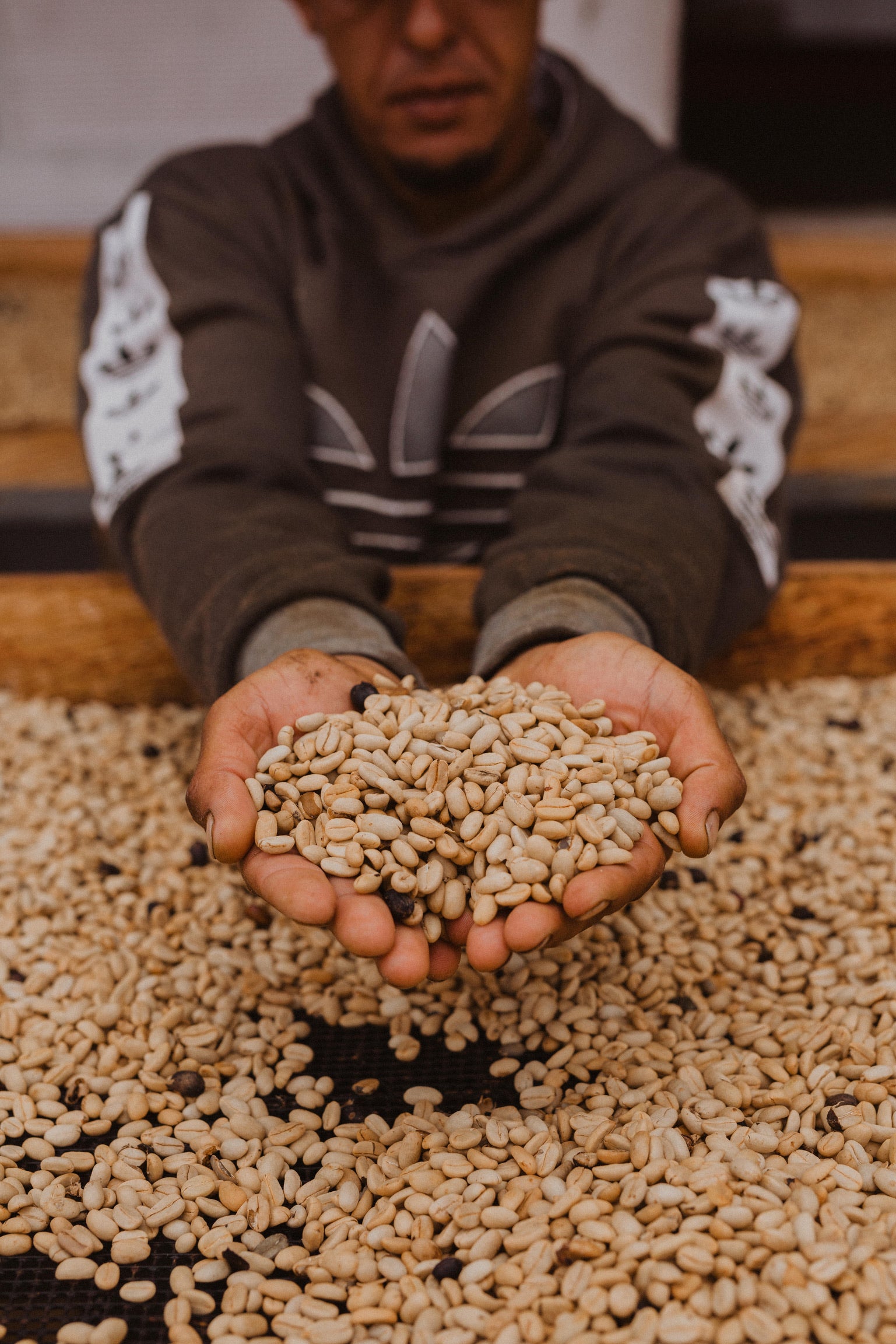
02. What are specialty coffees?
See moreWe’ll begin by defining specialty coffees — and what differentiates them from lower-quality beans.
-
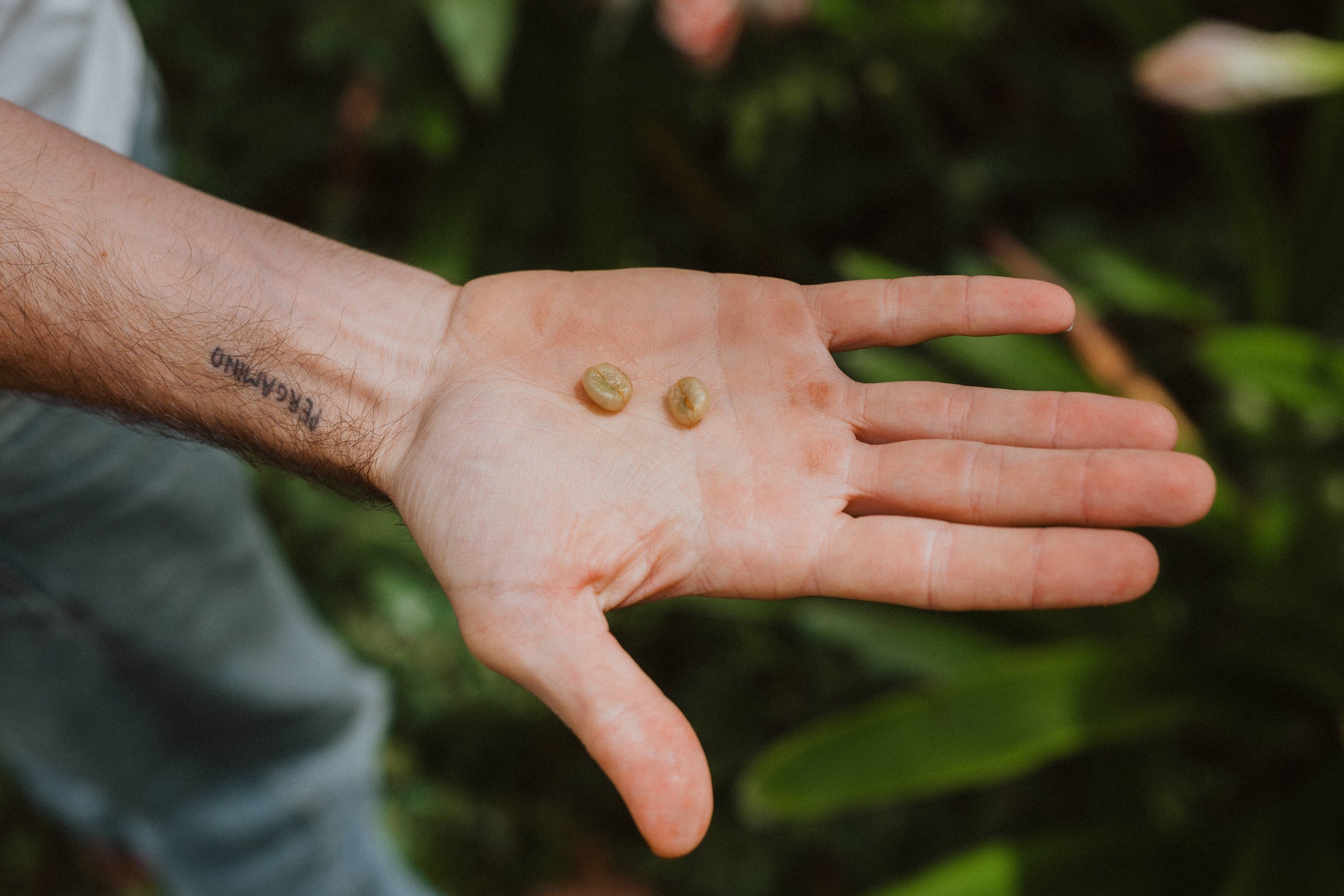
03. Describing coffee
See moreCoffee is like wine. There’s the gas-station kind that taste like sludge, the critically-acclaimed kind that experts and hipsters alike hail as tasting like bouquets of flowers — and everything in between.
-
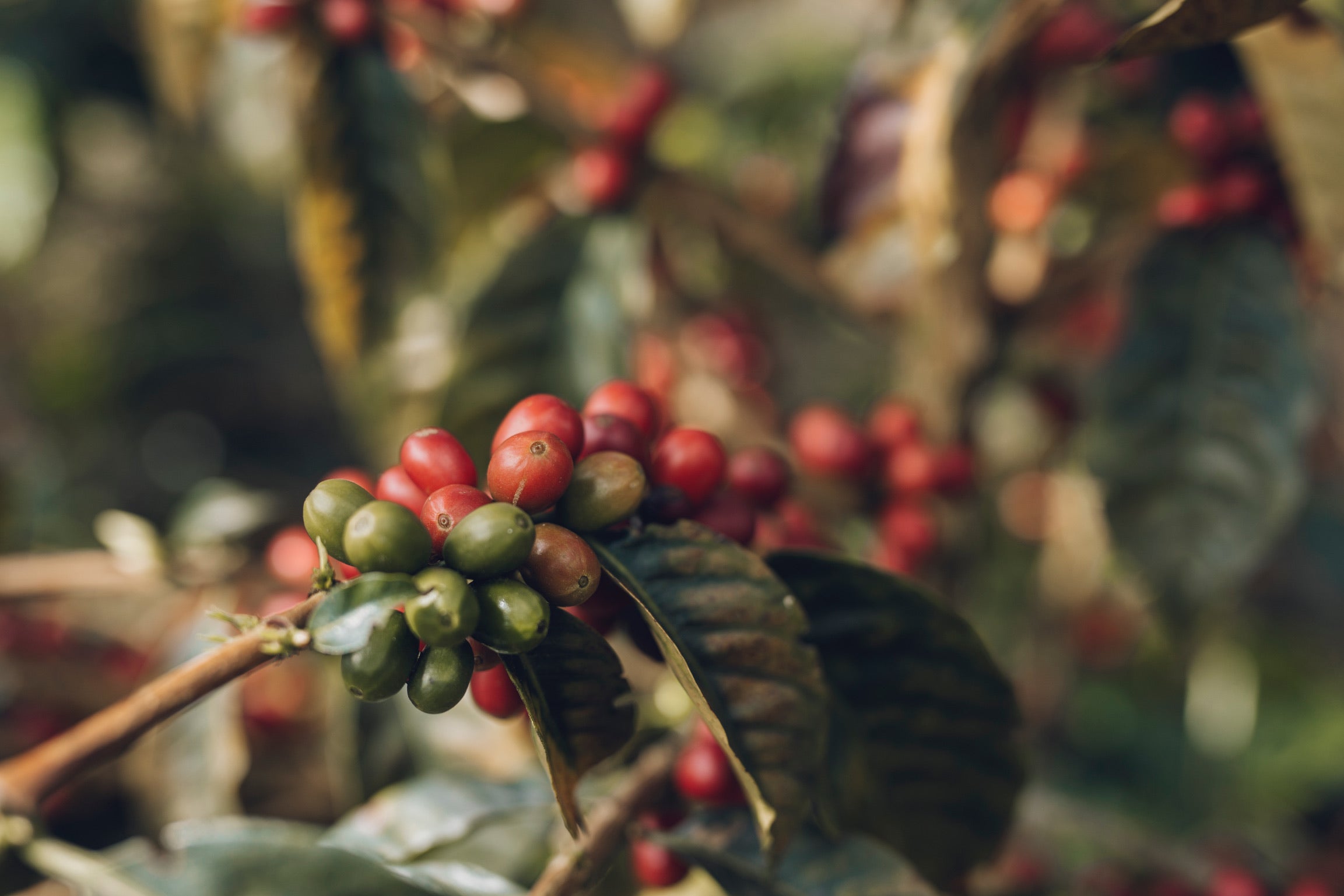
04. Agronomy
See moreThe process begins with a seed (the coffee bean itself) planted in sand, where it germinates into a small seedling called a “chapola.” After 3 months, the seedling is transplanted into a small bag, and continues to grow until it is strong enough to be planted in the field.
-
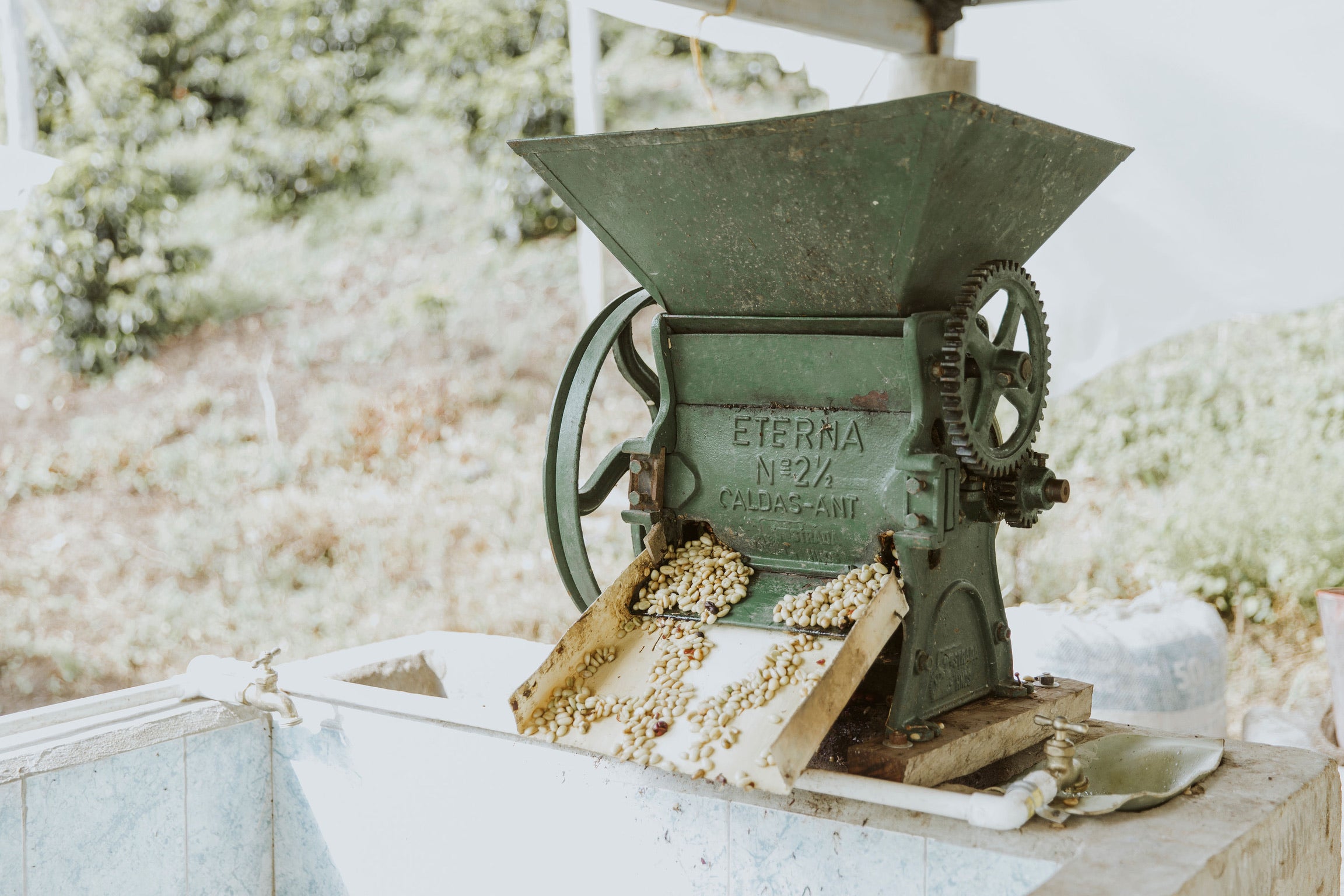
05. Farm processing
See moreRemember that the coffee we consume is the roasted seed of a fruit. The fruit begins its process of transformation when it is picked from the tree. Unlike other fruits (such as banana, avocado, mango, etc.), coffee can’t be picked while it is still green. It must be harvested at the perfect point of ripeness, when the cherry has fully matured.
-
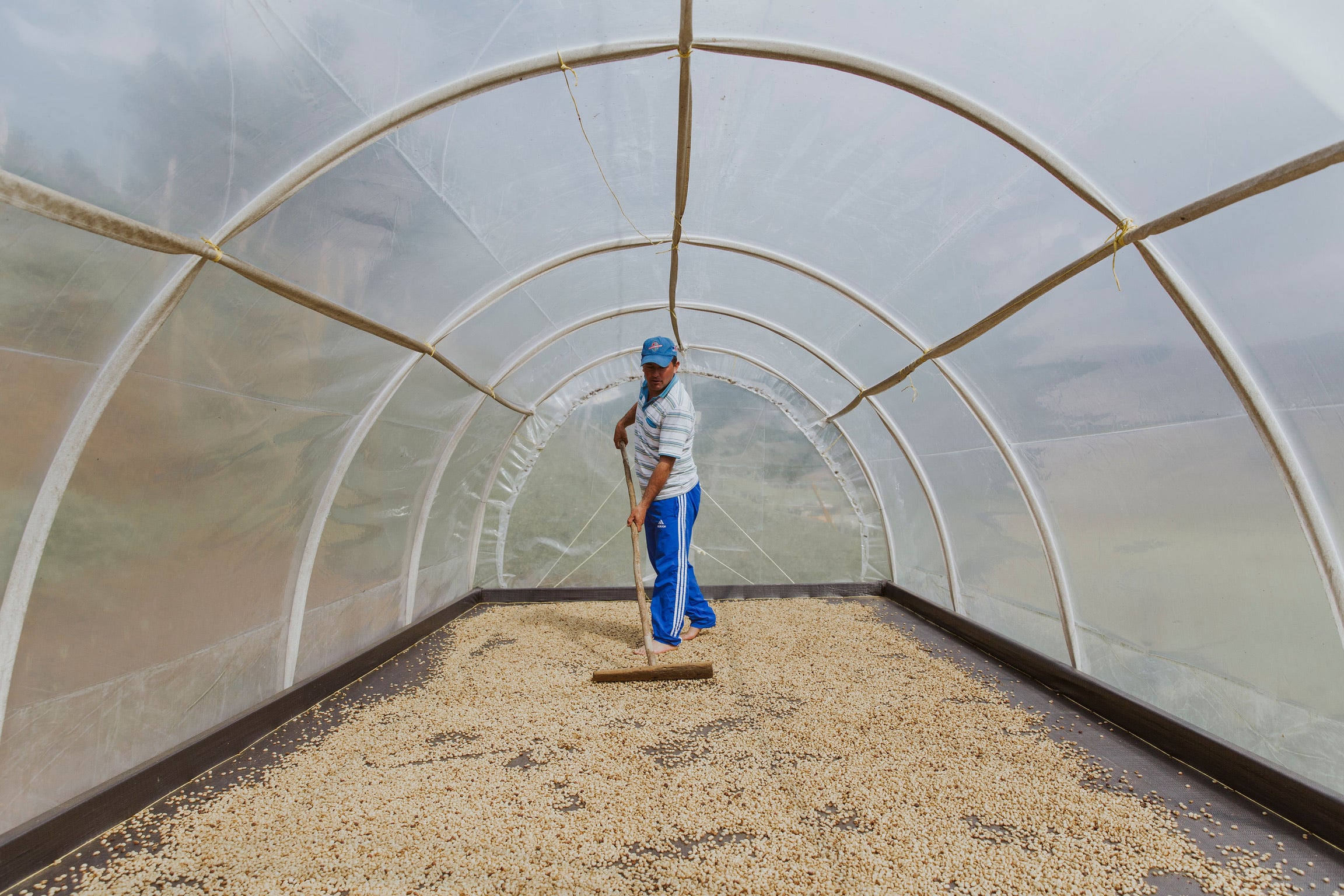
06. Roasting
See moreAt Pergamino, we are artisanal roasters. is means several things. First, that we roast in small batches under the careful oversight of a master roaster. We analyze each batch of green coffee in depth in order to determine the ideal roasting curve for its density, profile and final destination.
-
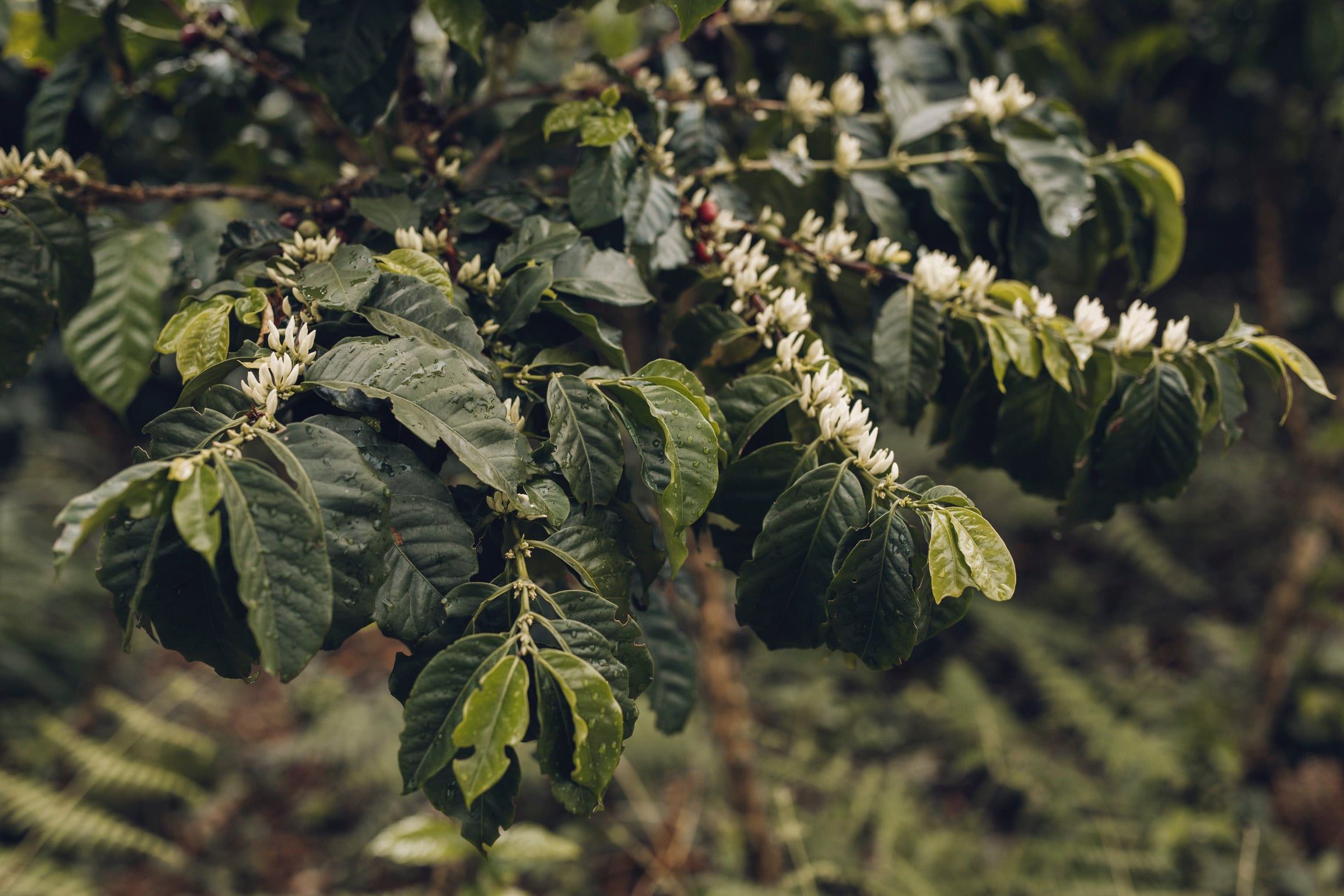
07. Species of trees
See moreAt Pergamino, we are artisanal roasters. is means several things. First, that we roast in small batches under the careful oversight of a master roaster. We analyze each batch of green coffee in depth in order to determine the ideal roasting curve for its density, profile and final destination.
-
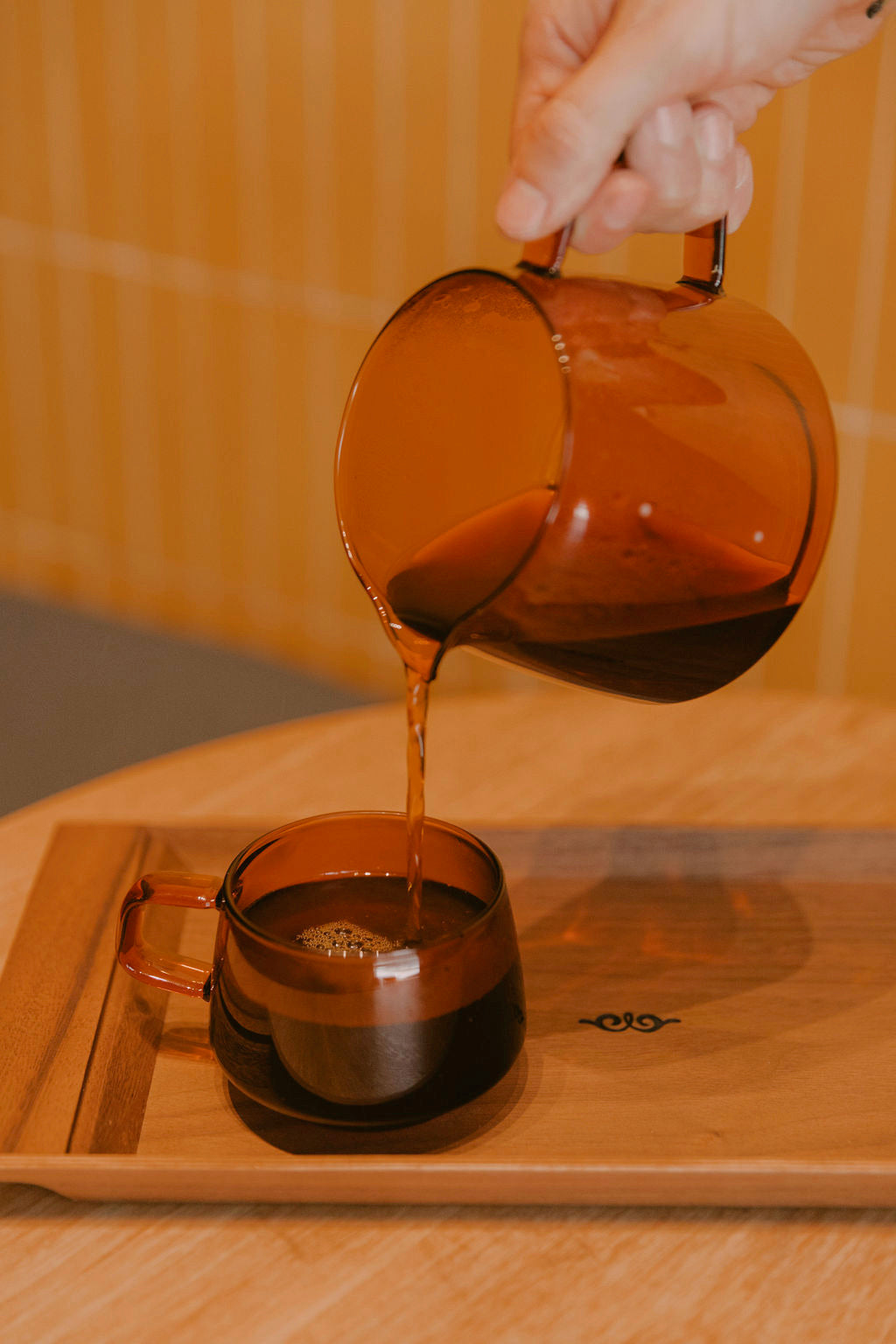
08. Extraction theory
See moreAs you can see, behind each cup of coffee is a world of complexity — meaning that we have a huge responsibility at the moment of the final brew. At Pergamino, we are very proud of our team of baristas, who assume this responsibility with great professionalism. They receive constant training, not only in the preparation of our drinks, but in the entire backstory of our coffees, and how to pass on their unique stories to our customers. But do not worry — with a little discipline and curiosity, you, too, can learn to make excellent coffee at home!
-
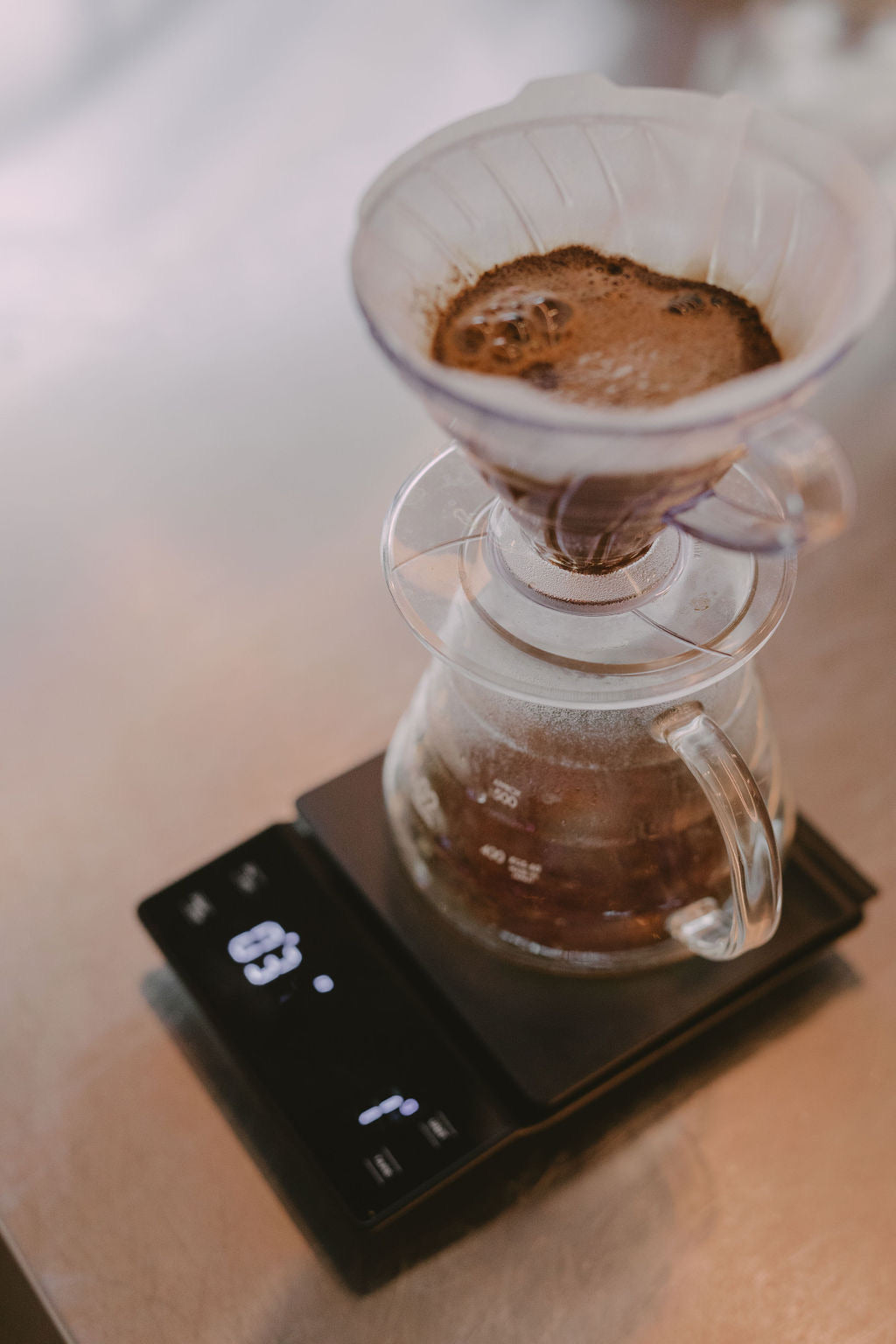
09. Preparation of filtered coffee
See moreBefore going into detail about brewing, we’d like to cover the core principles of coffee extraction. Brewing coffee is always a delicate game — balancing the quantity of coffee, the quantity of water, the type of grind, and the extraction time. Depending on the method, these factors can be varied in order to highlight specific attributes of a coffee.
-
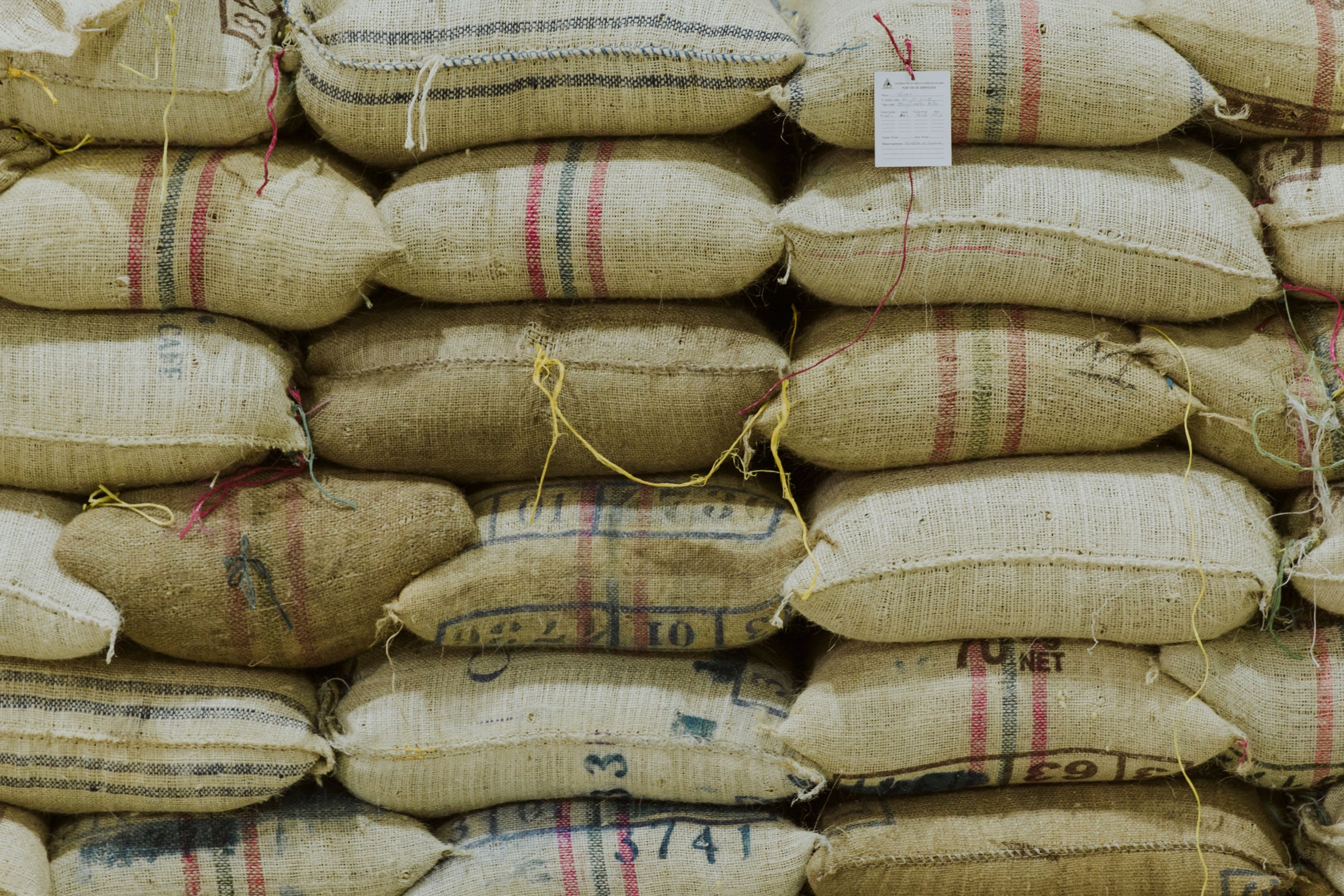
10. History
See moreCoffee’s global voyage began in the lush highlands of Ethiopia, the original motherland of the Coffea Arabica plant. The earliest known writing on the coffee plant, dating to the 10th century, characterizes it as a medicine—prepared as an infusion of coffee cherries in hot water.
-
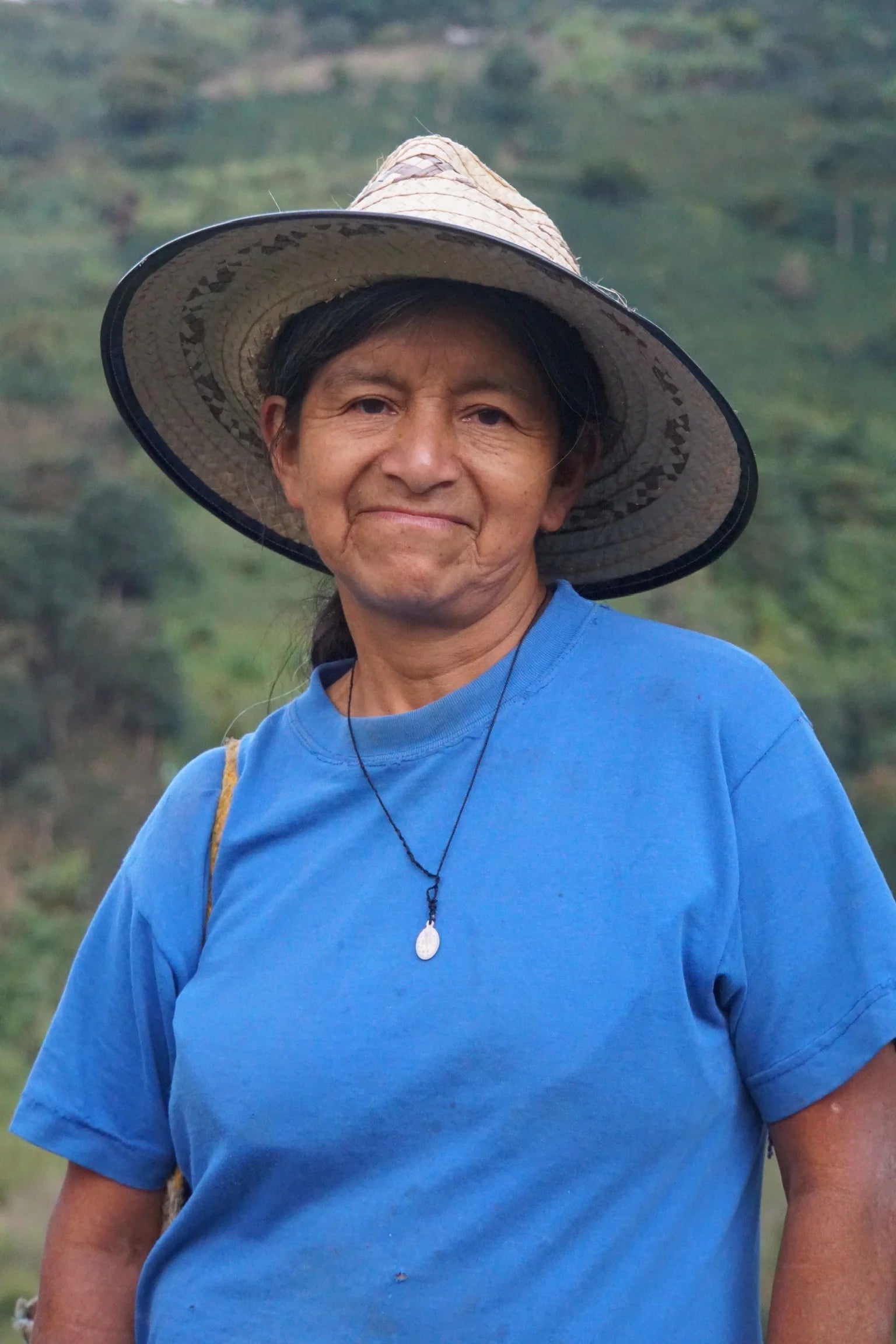
11. The Allied Farmers Project
See moreLike all small, medium and large producers in Colombia, Pergamino spent many years helplessly riding the roller coaster of international coffee prices. We had to invest in our crops without knowing what they would sell for during their 12-year production cycle.
-
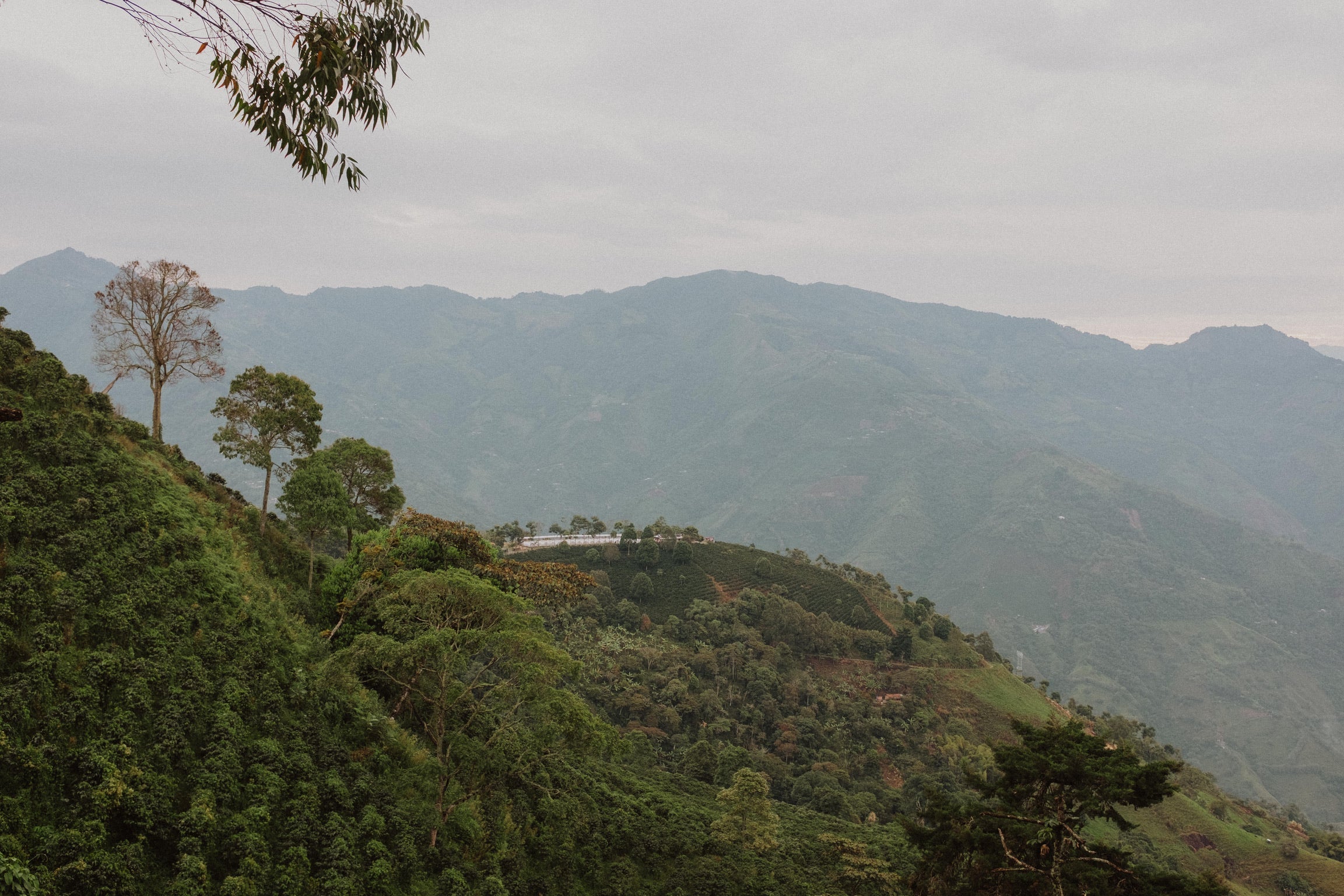
12. Dreams of the future
See moreWe dare to share with you a dream that we have for the future. Colombian coffee has changed a lot in the last 80 years, shifting towards more technical, large-scale cultivation — with widespread use of chemical fertilizers, pesticides, monoculture, and complete exposure (without shade trees).
-
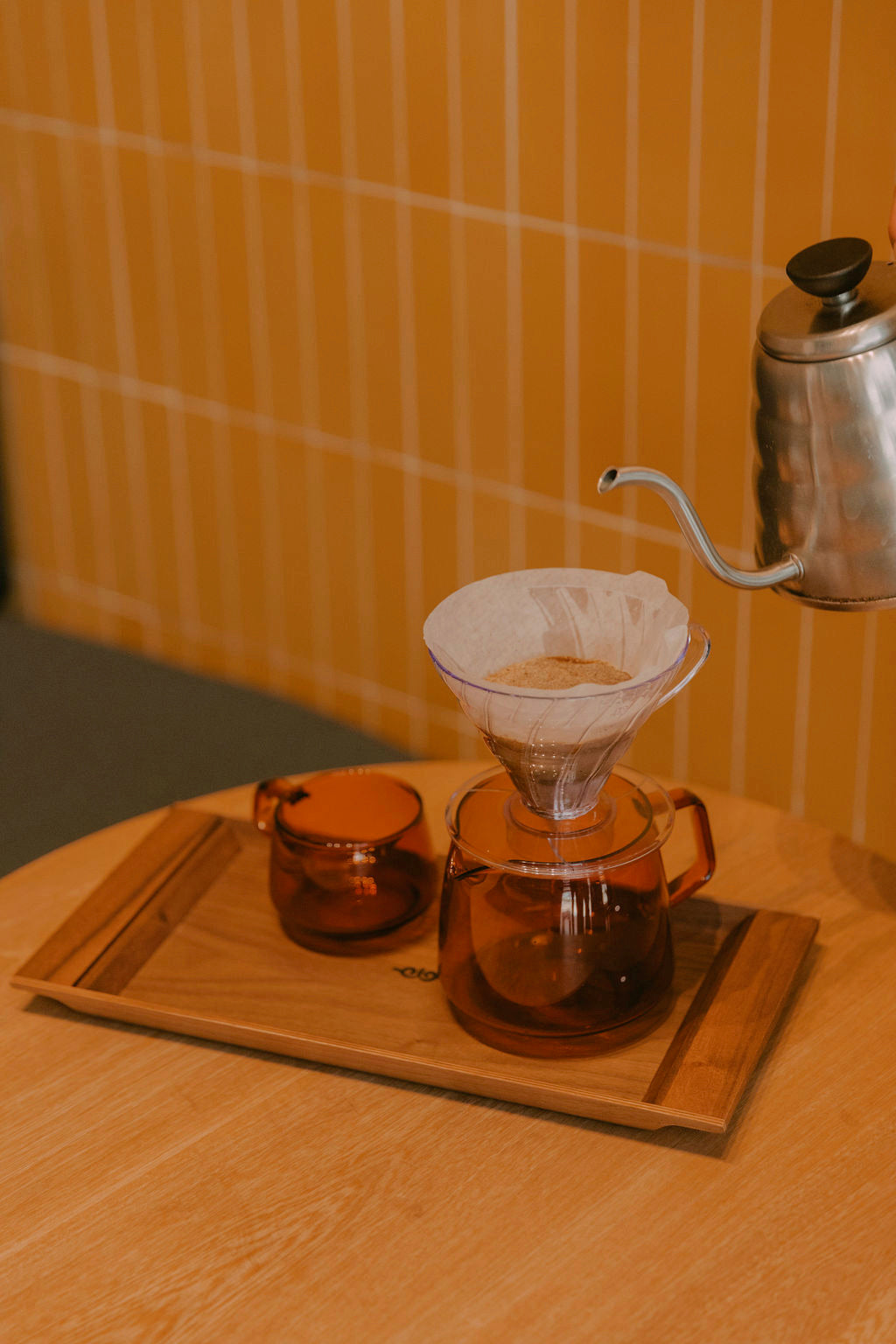
13. Brewing methods
See moreThese are our favorite methods and advices
-

Special Edition, Evelio Realpe (360g bag)
Pitalito, Huila
Regular price $26.99Regular priceUnit price / per -

Three-Origin Kit (500g bag) - 10% off
Allied producers across Colombia
Regular price $51.27Regular priceUnit price / per -

Urrao (500g bag)
Urrao, Antioquia
Regular price $20.99Regular priceUnit price / per -

Lomaverde (500g bag)
Santa Bárbara, Antioquia
Regular price $16.99Regular priceUnit price / per
















